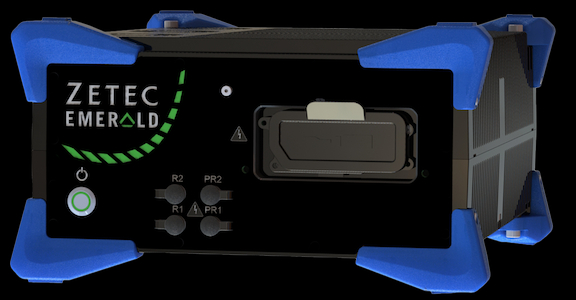Nondestructive testing technologies handle demanding inspection environments
Zetec phased array ultrasonic testing (PAUT) inspection products Emerald and Topaz feature real-time TFM capabilities, more detailed inspection results and improved performance.

Photo Credit: Zetec Inc.
Zetec Inc. (Snoqualmie, Wash., U.S.) a global supplier in nondestructive testing (NDT) solutions, features its latest phased array ultrasonic testing (PAUT) inspection technologies.
Recently introduced, Emerald is a compact phased array UT system with faster data acquisition, more detailed inspection results and improved performance in extreme industrial applications. Emerald delivers real-time multi-TFM (total focusing method) image-processing capability both onboard and offline, plus full matrix capture (FMC, up to 128 elements) and plain wave imaging (PWI). Emerald is ideal for NDT inspections of composites and other multi-layered, anisotropic materials, especially with large surface areas and complex geometries. Aerospace is a typical application.
Alternately, the company’s Topaz integrated, portable phased array UT instruments are reported to produce faster, more accurate results in demanding ultrasonic inspection environments. Driven by UltraVision Touch software, TOPAZ64 features real-time TFM capabilities, high-resolution FMC and increased acquisition frequency in the portable PAUT instrument category.
Related Content
-
Plant tour: Airbus, Illescas, Spain
Airbus’ Illescas facility, featuring highly automated composites processes for the A350 lower wing cover and one-piece Section 19 fuselage barrels, works toward production ramp-ups and next-generation aircraft.
-
Shearography equipment well suited to composites NDT
CAMX 2025: Laser Technology Inc. features analysis tools like the LTI-2100 and LTI 5200, which are optimal for detecting subsurface composite flaws.
-
Automated robotic NDT enhances capabilities for composites
Kineco Kaman Composites India uses a bespoke Fill Accubot ultrasonic testing system to boost inspection efficiency and productivity.



